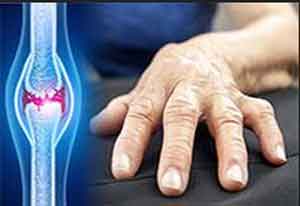- Home
- Editorial
- News
- Practice Guidelines
- Anesthesiology Guidelines
- Cancer Guidelines
- Cardiac Sciences Guidelines
- Critical Care Guidelines
- Dentistry Guidelines
- Dermatology Guidelines
- Diabetes and Endo Guidelines
- Diagnostics Guidelines
- ENT Guidelines
- Featured Practice Guidelines
- Gastroenterology Guidelines
- Geriatrics Guidelines
- Medicine Guidelines
- Nephrology Guidelines
- Neurosciences Guidelines
- Obs and Gynae Guidelines
- Ophthalmology Guidelines
- Orthopaedics Guidelines
- Paediatrics Guidelines
- Psychiatry Guidelines
- Pulmonology Guidelines
- Radiology Guidelines
- Surgery Guidelines
- Urology Guidelines
Vaccination recommendations for adults with autoimmune inflammatory rheumatic diseases: EULAR update

European League Against Rheumatism (EULAR) has updated its recommendations for vaccination in adult patients with autoimmune inflammatory rheumatic diseases (AIIRD) published in 2011. The updated recommendations comprise six overarching principles and nine recommendations. They address the need for an annual vaccination status assessment, shared decision-making and timing of vaccination, favoring vaccination during quiescent disease, preferably prior to the initiation of immunosuppression. Non-live vaccines can be safely provided to AIIRD patients regardless of underlying therapy, whereas live-attenuated vaccines may be considered with caution. Influenza and pneumococcal vaccination should be strongly considered for the majority of patients with AIIRD. Tetanus toxoid and human papillomavirus vaccination should be provided to AIIRD patients as recommended for the general population. Hepatitis A, hepatitis B, and herpes zoster vaccination should be administered to AIIRD patients at risk. Immunocompetent household members of patients with AIIRD should receive vaccines according to national guidelines, except for the oral poliomyelitis vaccine. Live-attenuated vaccines should be avoided during the first 6 months of life in newborns of mothers treated with biologics during the second half of pregnancy. These 2019 EULAR recommendations provide up-to-date guidance on the management of vaccinations in patients with AIIRD.
Patients with autoimmune inflammatory rheumatic diseases (AIIRD) have an increased burden of infections, attributed to the underlying autoimmune disease, comorbidities and immunosuppressive therapy, including glucocorticoids (GCs), disease-modifying antirheumatic drugs (DMARDs): conventional synthetic (csDMARDs), biological (bDMARDs) and targeted synthetic DMARDs (tsDMARDs). Vaccination in these patients prevents infections by inducing and/or enhancing protective immunity. Vaccination is particularly important in AIIRD patients, potentially translating into a lower rate of hospital admissions due to infections, emergency room visits and the rate of invasive infectious diseases.
Following are the major recommendations:
- Influenza vaccination should be strongly considered for the majority of patients with AIIRD.
- Pneumococcal vaccination should be strongly considered for the majority of patients with AIIRD.
- Patients with AIIRD should receive toxoid tetanus vaccination in accordance with recommendations for the general population. Passive immunization should be considered for patients treated with B cell depleting therapy.
- Hepatitis A and hepatitis B vaccination should be administrated to patients with AIIRD at risk. In specific situations, booster or passive immunization is indicated.
- Herpes zoster vaccination may be considered in high-risk patients with AIIRD.
- Vaccination against yellow fever should be generally avoided in patients with AIIRD.
- Patients with AIIRD, in particular, patients with SLE, should receive vaccinations against HPV in accordance with recommendations for the general population.
- Immunocompetent household members of patients with AIIRD should be encouraged to receive vaccines according to national guidelines with the exception of the oral polio vaccines.
- Live-attenuated vaccines should be avoided during the first 6 months of life in newborns of mothers treated with biologics during the second half of pregnancy.

Disclaimer: This site is primarily intended for healthcare professionals. Any content/information on this website does not replace the advice of medical and/or health professionals and should not be construed as medical/diagnostic advice/endorsement or prescription. Use of this site is subject to our terms of use, privacy policy, advertisement policy. © 2020 Minerva Medical Treatment Pvt Ltd